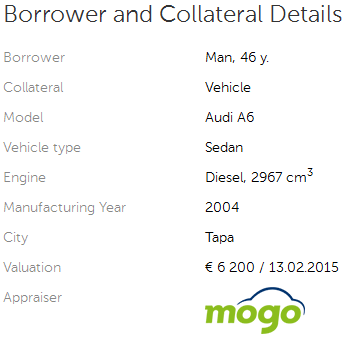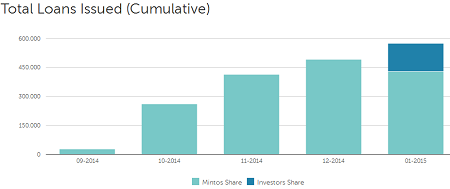What is Twino about?
TWINO is a peer-to-peer lending platform that connects investors with some money they could lend and borrowers who need some money for making their dream come true — buying a new car, covering tuition or medical costs, for travel and leisure, renovating their house or starting a business etc. The money is lent without a pledge. This is a chance for borrower to get a loan with a lower interest rate than a bank or the various short-term loan providers would offer, while the investor can make direct investments without institutional intermediaries and receive a higher return on his investments.
What are the three main advantages for investors?
First and foremost, it is as chance to get significantly higher return on your investment than in a bank. Our financial solution allows omitting complicated financial operations that require high administrative expenses; therefore, it is possible to provide the service for a lower cost.
Secondly, so far, TWINO has been the only company in European market to offer opportunities to invest into consumer loans with buyout guarantee that completely minimise the risk of investor.
Finally, you do not need to meet face to face or sign heaps of documents to become a TWINO investor — you can save yourself the precious resource of time! You can live anywhere in the world and become a TWINO investor, you physical location does not matter. All the investor has to do is to e-mail a scanned ID document  to prove his identity.
What are the three main advantages for borrowers?
The Latvian households similarly to the ones elsewhere in Europe are victims of the frozen economy after the crisis. If they want to make a larger purchase but can not put money aside from their monthly income, they have two options. They can borrow the money in a bank, but very often banks are not willing to credit these people due to strict crediting terms or they can get a short-term loan with very high interest. This is why TWINO is almost the only way of borrowing money with reasonable interest.
The borrower can fulfil any of his needs with the money, including investing in his future — paying for tuition or essential assets or even starting a career in business or a investing in a start-up, thus supporting the local economy. It is very topical people living in the countryside regions and to those, who cannot access bank loans and cannot get a short –term loan with low interest.
Finally, borrowers should not be afraid that they will not be able to evaluate their borrowing capacity adequately — TWINO has an experienced team that evaluates every borrowing request separately according to the rules of the Consumer Rights Protection Centre and they follow the progress of giving back the borrowed money. If the TWINO team sees that the borrower has encountered unforeseen difficulties, we look for solutions together with the client. This means that you must not be afraid that you will not receive consultations and help just because this is a financial technology. The TWINO team members are ready to help you any time by providing consultations and looking for solutions together with you.
 What ROI can investors expect?
What ROI can investors expect?
Out investors earn roughly 10-20% per annum. Of course, this can fluctuate depending on their investment amount.
What is the background of the company running Twino?
Finabay is an innovative online finance company founded in Latvia almost 7 years ago. It is also providing short-term loans and has developed its services in Poland, Czech Republic, Russia, Poland, Georgia and Denmark. This year it will launch its services in Spain
Is the technical platform self-developed?
Yes, the technical platform has been developed in Latvia by the experienced FinaBay IT Solutions Team.
What has been the greatest challenge so far in the course of launching Twino?
Currently the greatest challenge for TWINO is explaining what a peer-to-peer lending platform is to potential investors and borrowers. While this sector has been active in various European countries for almost 10 years now and it has lent 4.5 billion EUR to customers from 2012 to 2014, it is still a new service in Latvia and the Baltics. However we have to admit that this is not a burden, because peer-to-peer lending platforms are rooted in the economy of sharing, and through such peer-to-peer platforms it proves itself as a functioning model of economy — not only does it affect the well-being of individuals, it has a potential to stimulate the economy of regions and even countries. Continue reading

 Latvia p2p lending marketplace
Latvia p2p lending marketplace 
